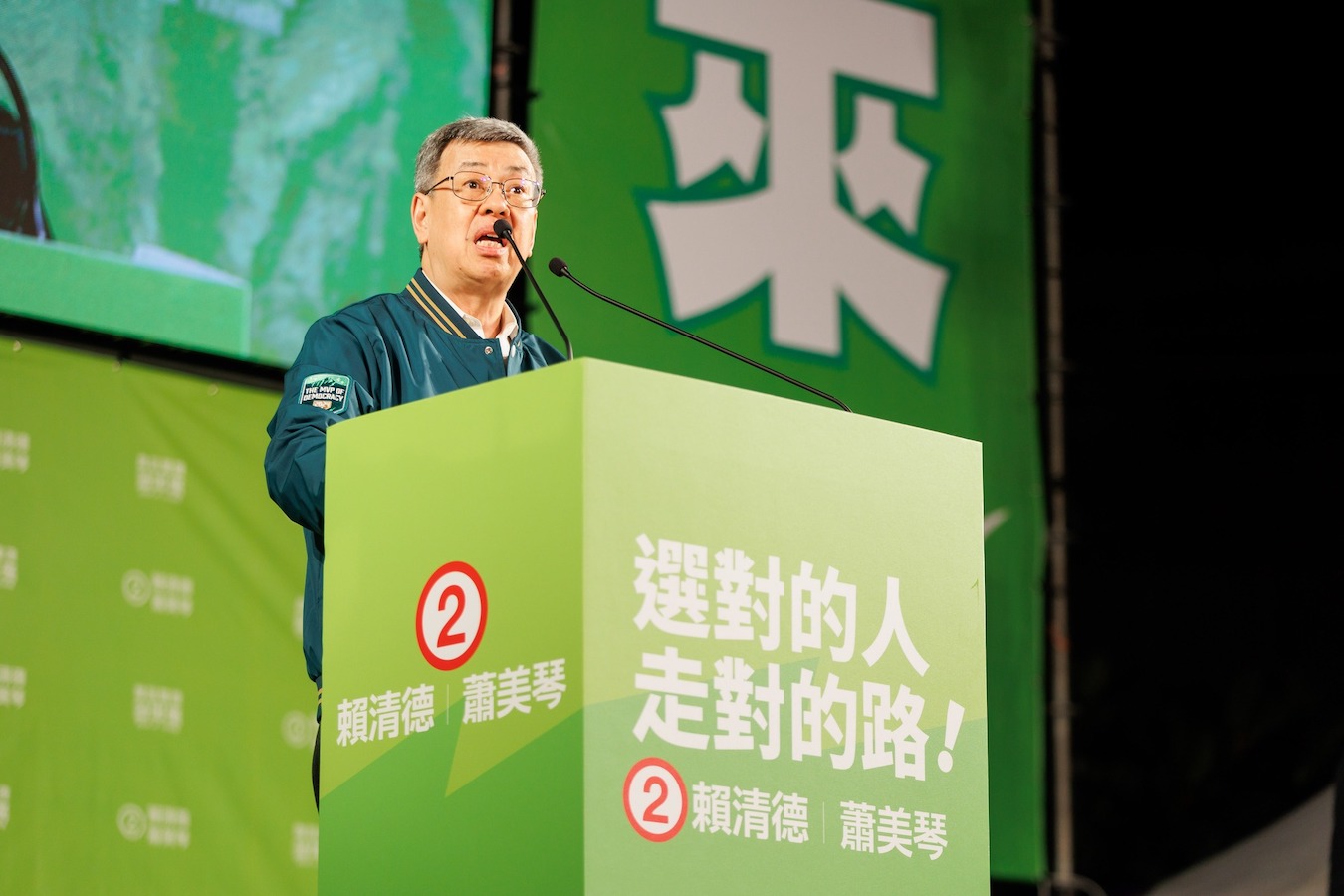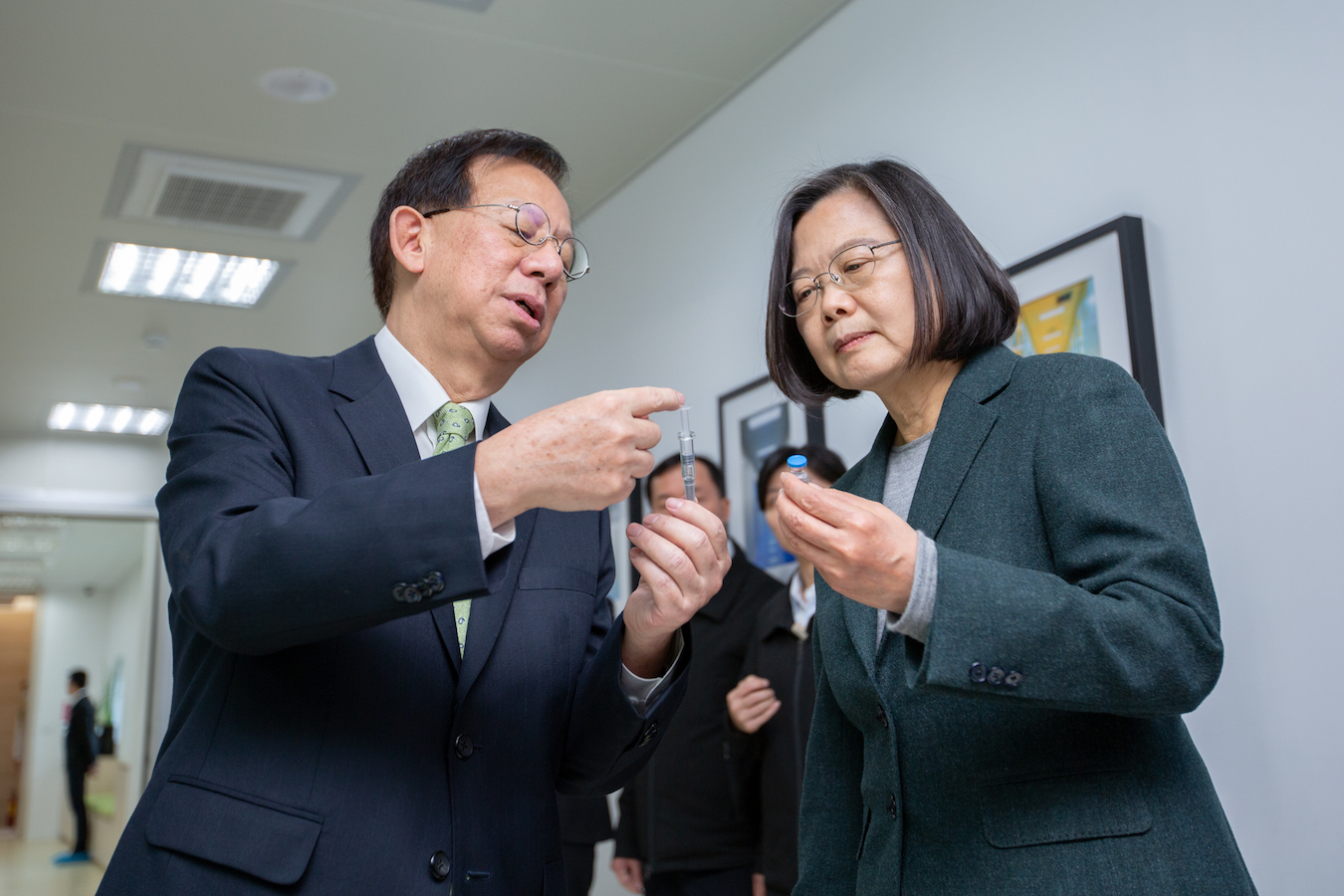by Brian Hioe
語言:
English
Photo Credit: Chien Chih-Hung/Presidential Office/Flickr/CC BY 2.0 DEED
THE KMT CALLED on Premier Chen Chien-jen to report to the legislature about Medigen contracts yesterday. Chen emphasized that there was nothing illicit about the deal during his report.
This cross-examination takes place in the wake of DPP presidential candidate Lai Ching-te calling for the disclosure of Medigen contracts with the government. Lai announcing his support for this measure would be a way of responding to KMT attacks on Medigen, Taiwan’s domestically developed and manufactured COVID-19 vaccine.
The Tsai administration pushed for the development of Medigen, given shortages faced by Taiwan at the time. In particular, Medigen was allowed to skip Phase III trials.
The KMT has sought to attack the Tsai administration over Medigen, however, alleging that the Tsai administration was only interested in developing Medigen because of its investments in the company. This is why there have been calls for the disclosure of vaccine contracts for Medigen.
 Premier Chen Chien-jen. Photo credit: Chen Chien-jen/Facebook
Premier Chen Chien-jen. Photo credit: Chen Chien-jen/Facebook
It would not be surprising if there was, in fact, backlash against the Tsai administration over the contract terms. Pharmaceutical companies are usually reluctant to disclose the contents of their contracts. Such contracts often do not publicize the details of vaccine orders, redacting information on price and quantity, or contain clauses to avoid liability. This reflects the enormous power that pharmaceutical companies have, even over governments.
This is not an issue specific to Taiwan or the DPP. Indeed, pharmaceutical companies that produced COVID-19 vaccines have been accused globally of putting profit before the priority on saving lives. Examples include Pfizer to the COVAX international vaccine sharing agreement.
Yet the KMT would be leveraging on the public’s lack of knowledge in order to attack the Tsai administration, even if the party must know better from its many years in power. After all, the KMT was then responsible for negotiating with pharmaceutical companies.
This is not the only issue that the pan-Blue has sought to leverage on the public’s lack of knowledge regarding vaccines. This is how Terry Gou positioned himself as calling for the negotiating of BioNTech vaccines, claiming that the government was inept in unable to negotiate such purchases and trying to position himself as a savior for Taiwan in negotiating vaccine purchases, though in reality, pharmaceuticals normally only sell to national governments and Gou required the government to back his proposal for this to take place.
Similarly, Taiwan is not the only country in the region to develop its own vaccines, and most countries in the world that were not major powers lacked vaccines. However, the general public may be unaware of this.
Even if Taiwan did receive AstraZeneca vaccines through donations from the US in the course of the pandemic, one recalls that the KMT sought to allege that AstraZeneca vaccines were dangerous in causing blood clots, and that the US was only foisting vaccines it did not want onto Taiwan. This did not prevent some KMT politicians from jumping the vaccination priority order to receive AstraZeneca vaccines.
One notes that these narratives have recurred on the KMT’s part regarding several issues. For example, the KMT also alleges that the US only provides unwanted arms that are dangerous and useless to Taiwan as part of arms sales, to cast doubt on the reliability of the US as an ally.
 President Tsai Ing-wen (right) being shown vials of Medigen. Photo credit: Wang Yu Ching/Presidential Office/Flickr/CC BY 2.0 DEED
President Tsai Ing-wen (right) being shown vials of Medigen. Photo credit: Wang Yu Ching/Presidential Office/Flickr/CC BY 2.0 DEED
Likewise, the KMT has sought to cast doubt on Taiwan’s capacity to domestically manufacture weapons systems such as submarines. Even when the Tsai administration framed the launch of Taiwan’s first domestically manufactured submarine as deserving of national pride, the KMT cast doubt on the domestic submarine program as an “iron coffin” for sailors. One observes similarly with Medigen, with the KMT casting doubt on Taiwan’s capacity to develop vaccines on its own, and suggesting that Taiwan should rely on Chinese vaccines. This, too, occurred even as the Tsai administration framed Medigen as an accomplishment of Taiwanese medical science.
Clearly, the KMT has taken to political narratives that cast doubt on Taiwanese efforts at self-reliance, then. This proves an interesting refrain of the party ahead of elections, with the KMT clamoring for the restoration of political and economic links with China.
Still, calling on Chen to report to the legislature also proves an interesting move at a time when the KMT and TPP call for a shift to a cabinet-style system of governance. Though details are scarce, one element they are emphatic on is calling for the Premier, President, and other government officials to report to the legislature, likely expecting to be in control of the legislature. One expects to see further attempts to grill DPP officials in this way if the DPP maintains control of the presidency but loses control of the legislature.

